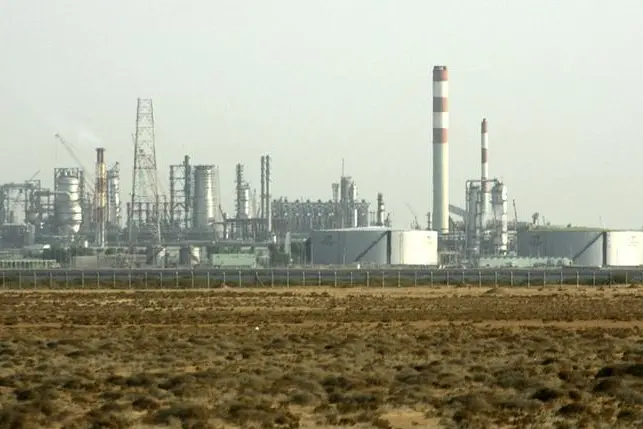PHOTO
SINGAPORE, Jan 11 (Reuters) - Oil edged up on Wednesday, lifted by reports of Saudi supply cuts to Asia, but prices were prevented from rising further over a lack of detail of these reductions and because of signs of rising supplies from other producers.
Prices for Brent crude futures
U.S. West Texas Intermediate (WTI) crude oil futures
Traders said that the price rises were a result of reports that Saudi Arabia, the world's top oil exporter, was telling some Asian customers that it will curb crude supplies slightly from contracted volumes in February, although Reuters was not able to confirm any details of the reductions.
There were also doubts that the overall cuts would go deep enough to rebalance a market suffering from oversupply for the past two years. Both Brent and WTI futures are down around 6 percent since the start of the year.
"Traders continued to fret about rising U.S. supply and compliance by OPEC to agreed-upon production cuts," ANZ bank said.
The U.S. Energy Information Administration (EIA) said on Tuesday that American crude production in 2017 would rise by 110,000 barrels per day (bpd) to 9 million bpd.
Another concern for traders were high U.S. crude stockpiles, with the EIA scheduled to release its latest figures on Wednesday.
"With inventories at the highest seasonal level in three decades, another increase in this week's report could see prices come under further pressure," ANZ said.
Outside the United States, there were lingering doubts over compliance with planned production cuts from members of the Organization of the Petroleum Exporting Countries (OPEC).
OPEC's second-biggest producer Iraq plans to raise crude exports from its southern port of Basra to an all-time high in February, keeping shipments high even as OPEC production cuts take effect this month.
Iraq State Oil Marketing Company (SOMO) plans to export 3.641 million bpd of crude in February, according to trade sources and preliminary loading schedules, potentially beating a record of 3.51 million bpd from December.
Some cuts, however, are happening. In non-OPEC member Russia, which also agreed to cut output, extreme cold as low as minus 60 degrees Celsius has helped to knock out production by around 100,000 bpd in the first few days of January, and many oil engineers expect more reductions as production facilities struggle to cope with the extreme conditions.
(Reporting by Henning Gloystein; Editing by Randy Fabi and Christian Schmollinger) ((henning.gloystein@thomsonreuters.com; +65 6870 3263; Reuters Messaging: henning.gloystein.thomsonreuters.com@reuters.net))





















